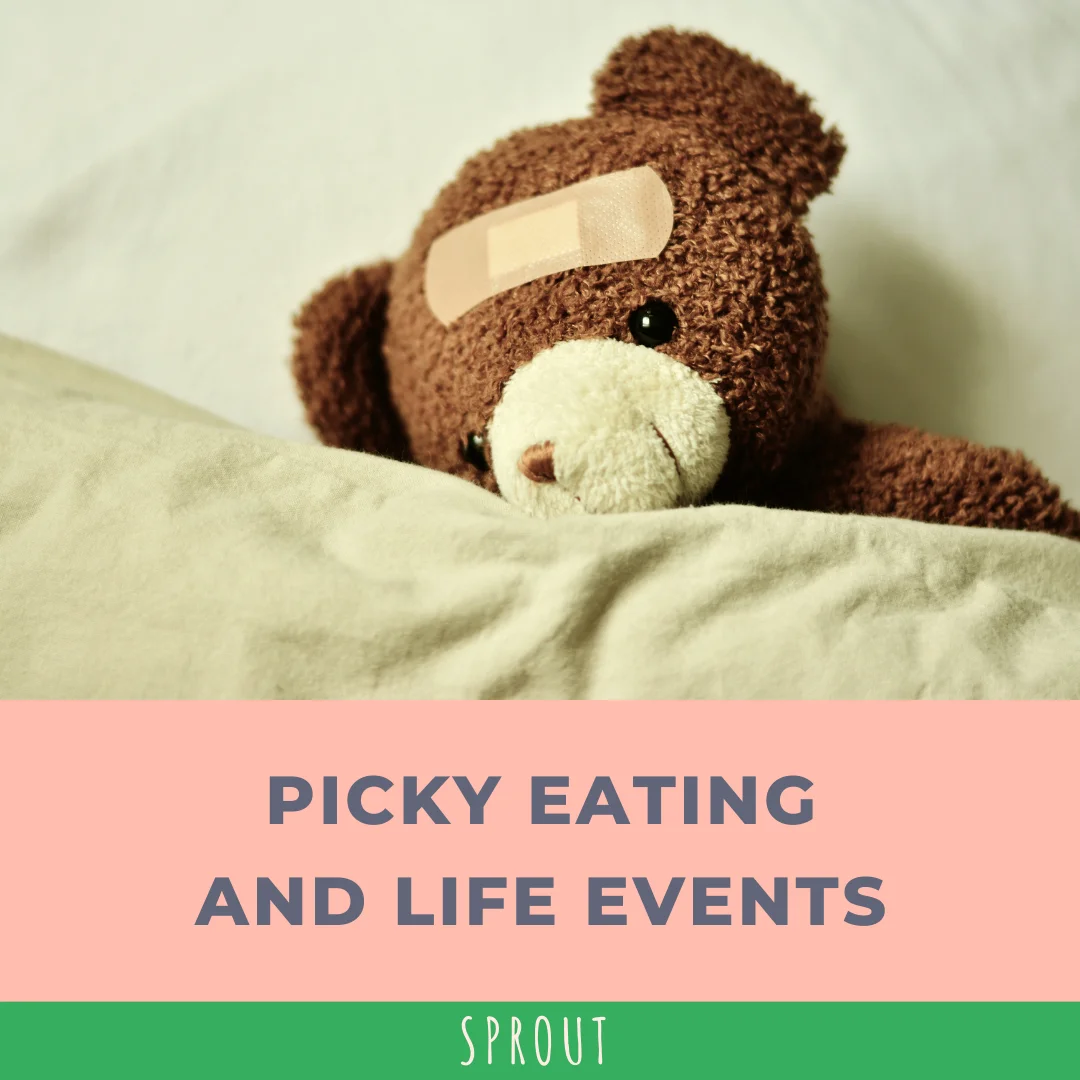Introduction: Why are they fussy all of a sudden?
It can be bewildering when your child, who once devoured a wide variety of foods, suddenly becomes more selective in their eating habits.
This sudden onset fussy eating can happen at any age, but is most often seen during the toddler years. While it might leave you scratching your head, rest assured that you're not alone.
In this article, we'll cover some of the reasons why this happens, offering some insights to help you navigate this confusing time with confidence.
Normal development
Although this sudden change in eating feels far from “normal” when you are used to seeing your child tuck into their meal with enthusiasm, it is often part of typical development.
Clinicians and researchers refer to this toddler phase as “neophobia” meaning a reluctance to eat new foods. At this time, children also frequently drop foods they used to enjoy.
Why does this happen?
In toddlerhood, your child is going through so many developmental changes. Their growth rate slows down and their appetite may reflect this. Secondly, they are so focused on their physical development and play, that eating often takes a back seat!
Your little one is also learning about who they are and their place in the world. They may be discovering their preferences the same way they are with other things like colours, clothes, and toys.
A big focus for toddlers is figuring out the rules and expectations in their world and they may well test the boundaries as a way of learning what is expected of them. When the goalposts keep changing (for instance, they are allowed an extra snack one day, but not the next) they may keep asking to work out what’s going on.
Toddlers very quickly learn patterns like “if I don’t eat this food I get a more preferred food like cereal soon after” so getting alternative foods during or soon after a meal can unintentionally reinforce the dropping of foods that were previously accepted.
Illness or bug
An illness or bug can also spark the sudden onset of fussy eating. We all know that being unwell can knock our appetite and it’s normal for children to eat very little while they are fighting a virus or infection.
Some children bounce back relatively quickly, for others it can take longer to gain back their interest in food.
Some illnesses may also come with symptoms like a sore throat, enlarged tonsils, or mouth ulcers that can make eating physically uncomfortable or painful. This may impact the foods that a child is willing to eat.
We also know that some viruses like Covid-19 can impact some people’s sense of taste and smell - and this can lead to changes in food preferences and less interest in food.
Finally, if a child has a vomiting bug, they may negatively associate certain foods with the experience of getting sick - and this can lead them to go off foods for a period of time.
Other life events
Sometimes a sudden change in eating habits may be prompted by a significant life event, or a traumatic incident. As well as bugs and illnesses, this could include things like accidents, medical procedures, loss, or changes in family structure.
A child may associate certain foods with the event, or they may cling to a set list of foods as a way of feeling safe and finding a sense of control.
Need for autonomy
At any age a child may suddenly become more restricted in their eating preferences as a way of expressing their autonomy.
All humans have a need for autonomy - in other words we need to feel in control of our actions and our body.
If a child picks up on lots of food rules like “you have to eat your vegetables” “you can only have 1 piece of chocolate” or “you can’t have dessert until you’ve finished your main course” they may start to feel that others are making their eating decisions for them.
A common response to this is to try to gain back a sense of autonomy, by insisting on only eating certain foods or requiring foods to be presented in a particular way.
Need for connection
Another important need we all have as humans is the need for connection, inclusion, and a sense of belonging.
In some cases, children may be looking for more connection and this can play a part in their eating decisions - particularly if you find that they look to you for a reaction when deciding whether to eat something or not.
Focusing on your child’s eating (in either a positive way or a negative way) may accidentally reinforce their set eating preferences to continue.
It can help to focus on social connection and conversation at mealtimes while taking all focus away from the food. Shift your attention to catching up with your child rather than “feeding them” and avoid commenting on what they are or are not eating.
It can also help to make plenty of space for connection and quality time together away from mealtimes.
What you can do
When you experience sudden changes in your child’s eating preferences or appetite, for any of the reasons above, here are a few steps you can consider.
· As much as possible try to stick to your usual routine. Avoid offering food too frequently - resulting in a grazing pattern which further decreases appetite.
· Plan foods you know your child can eat, or has eaten recently, and avoid getting alternatives during or after the meal.
· Avoid getting into negotiations or arguments about food. You provide foods you know your child can manage at regular times - after that let your child decide whether or not to eat it.
· While seeing your child’s eating preferences change can be very worrying, do your best to remain calm and neutral around your child. If they see that you are delighted when they eat, and disappointed when they don’t, this can accidentally add expectations to their eating and make them feel under pressure.
· Give your child plenty of autonomy about what food goes in their body. You can still set the routine and decide what’s on the menu - but avoid prompting your child to take more or less of certain foods.
· It may help to rule out any ongoing medical issues that could be contributing to your child’s low interest in food - check in with your doctor or paediatrician.
Conclusion
So, while sudden changes in eating preferences can come out of the blue and lead to a lot of worry and uncertainty, there is usually a reason behind it. It can often be part of typical development, or it may be prompted by an illness or life event.
It’s also well worth considering some of your child’s psychological needs - like their need for autonomy and their need for connection.
Whatever the reason for your child’s sudden change in food preferences - try to stick to your usual routine and stay calm and neutral about their eating decisions. If you’re worried, try our FREE picky eating quiz to see how picky they might be and how much impact its having on you and your family.

